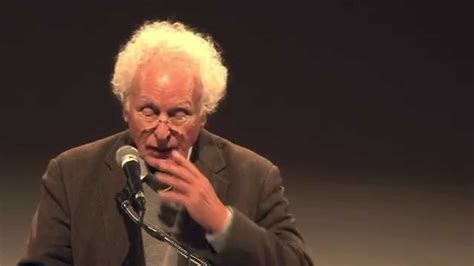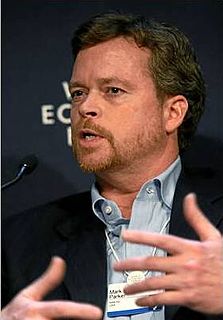A Quote by Michael Gazzaniga
While there have been great technological advances in the study of the brain, yielding enormous amounts of data on its physical and psychological characteristics, the old problem of relating mind to brain in a reasonable fashion remains unaccomplished.
Related Quotes
Since functional brain imaging first emerged, we have learned that there aren't very many brain regions uniquely responsible for specific tasks; most complex tasks engage many if not all of the brain's major networks. So it is fairly hard to make general psychological inferences just from brain data.
The elegant study... is consistent with the themes of modern cognitive neuroscience . Every aspect of thought and emotion is rooted in brain structure and function, including many psychological disorders and, presumably, genius. The study confirms that the brain is a modular system comprising multiple intelligences, mostly nonverbal.
Scientists who study brain-wave activity found that the longer one watches television, the more likely the brain will slip into "alpha" level: a slow, steady brain-wave pattern in which the mind is in its most receptive mode. It is noncoggnitive mode; i.e., information can be placed into the mind directly, without viewer participation.
We live in the Age of the Higher Brain, the cerebral cortex that has grown enormously over the last few millennia, overshadowing the ancient, instinctive lower brain. The cortex is often called the new brain, yet the old brain held sway in humans for millions of years, as it does today in most living things. The old brain can't conjure up ideas or read. But it does possess the power to feel and, above all, to be. It was the old brain that caused our forebears to sense the closeness of a mysterious presence everywhere in Nature.
Structurally we should understand that one cannot think that the human brain is different from the brain of the other vertebrates. It is an important question, because we can investigate what is the difference between the brain of a mouse and ours, and of course the difference is enormous, in size and capacity.
Modern brain-scan technology has revealed that each person shapes a completely unique brain. Other studies have documented the amazing regenerative ability of the brain, which can be reshaped by the power of your mind to bring you the world you desire. Knowing that, the obvious question arose: Why not use your mind to create the brain you want, using conscious choice?
Mind mapping is a technique based on memory and creativity and comprehension and understanding, so when the student or a child uses the mind map, they are using their brain in the way their brain was designed to be used, and so the mind helps them in all learning and cognitive skills. It simply helps them in what the brain does naturally.
Chunking is the ability of the brain to learn from data you take in, without having to go back and access or think about all that data every time. As a kid learning how to ride a bike, for instance, you have to think about everything you're doing. You're brain is taking in all that data, and constantly putting it together, seeing patterns, and chunking them together at a higher level. So eventually, when you get on a bike, your brain doesn't have to think about how to ride a bike anymore. You've chunked bike riding.

































